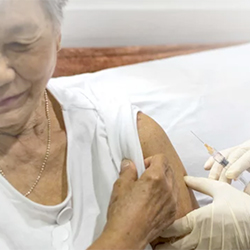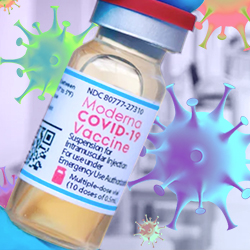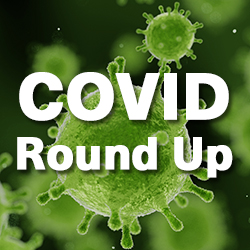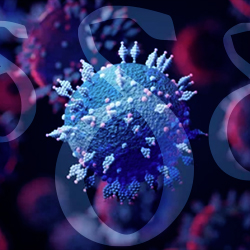By IDSE News Staff
The FDA amended its emergency use authorizations (EUAs) for the Pfizer-BioNTech and Moderna COVID-19 vaccines to allow for a third dose in solid-organ transplant recipients or those who are diagnosed with conditions that are considered to have an equivalent level of impaired immunity.

The action does not apply to people who are not immunocompromised, the FDA said.
“The country has entered yet another wave of the COVID-19 pandemic, and the FDA is especially cognizant that immunocompromised people are particularly at risk for severe disease. After a thorough review of the available data, the FDA determined that this small, vulnerable group may benefit from a third dose of the Pfizer-BioNTech or Moderna vaccines,” said acting FDA Commissioner Janet Woodcock, MD.
In an earlier briefing by the COVID-19 Response Team, CDC Director Rochelle P. Walensky, MD, MPH, said this expanded EUA would affect fewer than 3% of adults.
People with organ transplants and others who are severely immunocompromised are especially vulnerable to COVID-19 infection, according to the FDA. The agency evaluated information on the use of a third dose of the Pfizer-BioNTech or Moderna vaccines in these individuals and determined that the administration of a booster may increase protection in this population.
The decision was made in part based on a recent study from Canada, according to Dr. Walensky.
Scientists with the Ajmera Transplant Centre, in Ontario, enrolled 120 transplant patients between May 25 and June 3 in a randomized, double-blind, placebo-controlled study. No patient had COVID-19 previously and all had received two doses of the Moderna vaccine. Half of the participants received a third shot of the vaccine (two months after their second dose) and the other half received placebo.
The primary outcome was based on antibody level greater than 100 U/mL against the spike protein of the virus. In the placebo group, the response rate was 18%, whereas in the Moderna three-dose group, the response rate was 55%.
"We knew from previous studies that two doses were not enough to produce a good immune response against COVID-19 in transplant patients," said Deepali Kumar, MD, the director of Transplant Infectious Diseases, UHN and joint-senior author of the study (N Engl J Med 2021 Aug 11 DOI: 10.1056/NEJMc2111462).
"Based on our study, a third dose of COVID vaccine is definitely the best way to increase protection in transplant recipients."
This study also looked at the effectiveness of neutralizing antibodies, and in this case, 60% of the patients in the Moderna group developed neutralizing antibodies versus 25% in the placebo group.
The study also found a big difference in T-cell response between the two groups.
Additionally, the third dose was very well tolerated with only mild side effects, and did not cause acute organ rejections—an important finding, as there were concerns that repeated vaccinations could increase the incidence of organ rejection in transplant recipients.
In addition, these patients should be counseled to maintain physical precautions to help prevent COVID-19. Close contacts of immunocompromised persons should be vaccinated, as appropriate for their health status, to provide increased protection to their loved ones, according to the FDA.
Besides the above actions, health care providers should consider monoclonal antibody treatment options with these patients if they should contract or be exposed to COVID-19.
The Pfizer-BioNTech COVID-19 vaccine is currently authorized for emergency use in individuals ages 12 years and older, and the Moderna COVID-19 vaccine is authorized for emergency use in those ages 18 years and older. Both vaccines are administered as a series of two shots: The Pfizer-BioNTech vaccine is administered three weeks apart, and the Moderna vaccine is administered one month apart.
The authorizations for these vaccines have been amended to allow for a booster to be administered at least 28 days following the two-dose regimen of the same vaccine to individuals who have undergone solid-organ transplantation or who are diagnosed with conditions that are considered to have an equivalent level of impaired immunity.
“Other individuals who are fully vaccinated are adequately protected and do not need an additional dose of COVID-19 vaccine at this time,” Dr. Woodcock said. “The FDA is actively engaged in a science-based, rigorous process with our federal partners to consider whether an additional dose may be needed in the future.”
The Advisory Committee for Immunization Practices will consider the issue of boosters at a meeting on Friday, Aug. 13.




